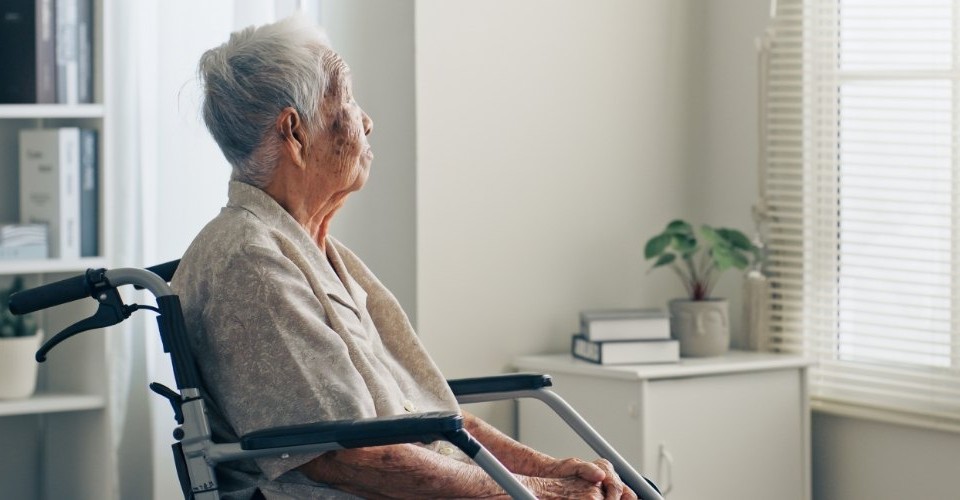Home Care vs. Nursing Homes – Which One Is The Best Bet?

The Amazing Benefits Of Meditation For Dementia
June 28, 2022
How to Create an Effective Senior Care Plan
July 19, 2022Choosing the appropriate senior care for your aging loved ones can be tricky. All the available options might confuse you, and you could find it difficult to make the right choice. This blog will analyze home care vs. nursing homes and help you make an informed decision.
Nursing Homes vs. In-Home Care: Exploring The Right Choice
Many seniors and their loved ones reach a point in life where they realize they could use a bit of outside help. At this point, deciding whether nursing homes are a better fit or they should opt for in-home care can be difficult. Many seniors seek socialization with their age group and access to medical attention round the clock, whereas some just don’t want to leave their homes.
Several key factors must be considered when making a big decision such as this one. Here, we will discuss the differences between home care vs. nursing homes to help you make the best choice for yourself or your loved ones.
Questions You Need to Ask
One of the primary factors to help you decide is evaluating the beneficiary’s requirements. You need to ask a couple of questions to make an informed decision:
- Do they need someone to help them around the house with daily tasks, such as assistance with bills and finances, medication reminders, chores, or need a companion?
- Is there a requirement for significant medical assistance after recovering from a severe injury or a mental disability?
- Are planned meals or organized activities a requirement?
- Does the senior wish to be surrounded by family?
- Are the house and its environment safe for the senior’s health conditions?
Answering these primary questions can help you understand your requirements. So, before you move any further, make sure you have determined the level of care required.
Home Care vs. Nursing Homes: Comparing the Two
Nursing Home Care
Nursing homes can accommodate the elderly as well as younger residents with disabilities. Nursing home services include 24/7 assistance, personal grooming, cleaning, meals, help with moving around, and nurses, to name a few. Residents also get physical therapy where applicable, provided by physicians or therapists often living within the premises.
Nursing homes offer both secluded and semi-private rooms. Many facilities also offer added amenities such as shared spaces, rec rooms, and scheduled activities. These recreational activities ensure the residents are engaged and entertained throughout the day.
Benefits of Nursing Home Care
A nursing home can be highly beneficial for the elderly. If you are reluctant about choosing one for yourself or your loved one, these benefits will make your task of selection much easier:
1. Assistance With Daily Tasks
One of the main reasons the elderly cannot live independently is that they require assistance with mundane tasks. They have difficulty bathing, dressing, running errands, preparing meals, and taking medicines on time. Nursing facilities offer assistance with these tasks, relieving seniors of an unnecessary burden.
2. Balanced Stimulation
Seniors living alone at home often experience a negative effect on their overall health due to lack of cognitive and physical stimulation. Similarly, seniors moving in with younger grandchildren can get overwhelmed, which is equally negative to their health. On the contrary, nursing facilities have a balanced environment with appropriate stimuli for optimal physical and mental health.
3. Specialized Health Care
At a nursing facility, seniors are under the constant supervision of health care experts. The level of care they receive at a facility is incomparable to what they would have while living with family.
Additionally, people suffering from conditions such as Alzheimer’s, Parkinson’s, dementia, diabetes, or cancer require special attention. Nursing facilities offer physical, speech, and occupational therapy to promote their overall well-being.
4. Active Socialization
One of the primary burdens of living all by yourself is loneliness. Even the seniors living with their families cannot socialize with their peers regularly. Nursing facilities kill the boredom and offer 24/7 companionships. A social network with fun activities staves off depression and provides plenty of other health benefits.
5. Proper Meals
Cooking meals for seniors is not easy and can be dangerous as well. When living with family, there are chances of neglect or feeding something unsuitable to the elderly. Consequently, ensuring they get sufficient nutrition and a safe and healthy diet is a challenge. However, meals at a nursing facility are customized to each individual’s health and are prepared under a nutritionist’s supervision.
6. Safe Environment
Living alone can be pretty dangerous for the elderly. Grab bars, emergency call boxes, fully functioning smoke detectors, and other safety measures are available in nursing facilities. These measures significantly minimize the risks of potential harm. Additionally, injuries, financial exploitation, and different sorts of fraud, which seniors are particularly vulnerable to when living independently, can also be avoided with round-the-clock supervision at a nursing facility.
Home Care
In-home care can range from a few hours per week to 24/7 care. This option can be pretty costly, and in most situations, it comes from hospice or palliative care services. However, home care can offer many benefits to the ill and elderly.
Benefits Of Home Care
1. Comfort Of Home
Home care is a perfect solution for seniors who do not wish to move and prefer to stay in the comfort of their homes. Home caregivers can stay as long as you require and provide round-the-clock care, assistance, and companionship. There’s also freedom and the comfort of familiar surroundings. Many seniors prefer living in their homes, whereas the hustle and bustle of kids running around do not bode well for others.
2. Aid in Daily Tasks
The carers at in-home care can help with daily tasks such as hygiene, medication reminders, transportation, meal preparations, general housekeeping, and much more. However, they might not be able to perform the duties of skilled medical nursing professionals such as nurses, therapists, and doctors.
3. Personalized Care
In-home caregivers are bound to provide personalized care to their patients because they have to use all the resources available at home. Moreover, people who choose home care services don’t have to adhere to the strict schedules and routines of a nursing facility. They can live their life however they want and still get the care they deserve.
4. Focused Attention
One of the major advantages of home care is that there aren’t many people around who require constant support and care. This means that the elderly can get one-on-one attention. The caregivers offer their complete focus, attention, and care to just your loved ones.
Things to Consider Before Choosing
In-home care might not be the best option for elders suffering from severe diseases. There is always a chance of a medical emergency, and an ambulance may take some time to arrive, which is quite risky. If the subsidiary does not have any severe illness, then home care is alright; otherwise, the absence of a medical professional can pose a significant threat to their wellbeing. In such cases, a nursing home is the best choice for your loved ones.
In some cases, nursing homes can be expensive. Most people prefer private rooms, and they aren’t easy to afford. Furthermore, most nursing facilities have proper schedules and routines that one has to follow. We all know most adults are accustomed to their own routines, so following a strict schedule becomes difficult and bothersome for them.
However, nursing homes might be right for your loved ones if they require round-the-clock attention and have medical conditions too. When choosing home care, families should reflect upon their needs and requirements.
Home care does no harm if the senior does not require round-the-clock assistance and does not have a chronic illness. However, before hiring an individual or a nursing home, you should run background checks, confirm their credentials, and ensure they are eligible for the responsibility.
Final Verdict
There is no correct answer to home care vs. nursing homes. Each serves a purpose, so it all comes down to the patient’s needs and wants. Regardless of your choice, Cascade Valley offers both home care and an all-encompassing nursing home facility. We offer customized plans to fit your budget and have trained staff on board to suit your needs. Contact us today, and our team will be happy to assist you.




